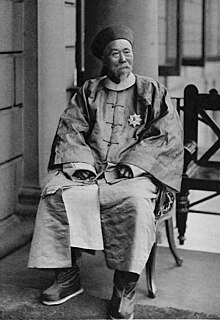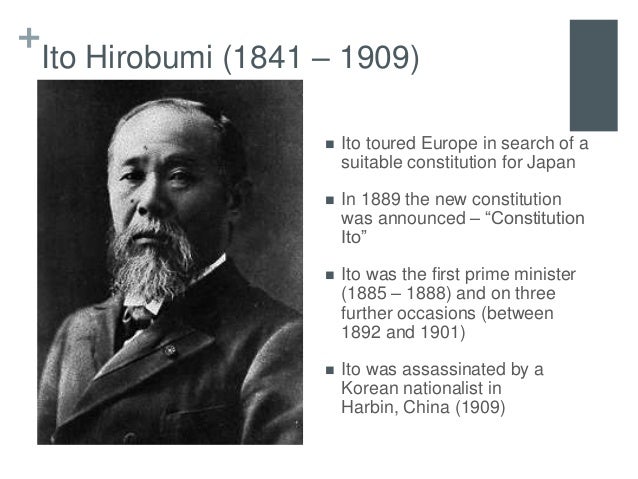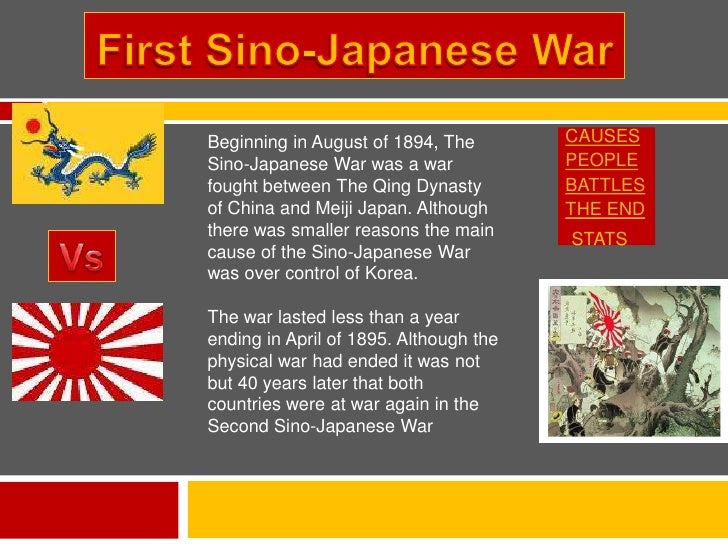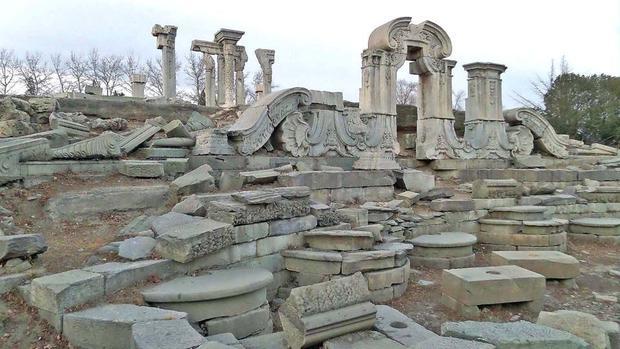China- Avoiding the Lime Light
 1, 2, 3
1, 2, 3 Hybrid
Hybrid- Posts : 745
Join date : 2015-02-03
Location : Colombo
 Re: China- Avoiding the Lime Light
Re: China- Avoiding the Lime Light
yellow knife wrote:Destruction of " Garden of Perfect Brightness" or Yuang Ming Yuan of Beijing is local tourist attraction in China. It is not much popular among foreign tourists to China. Each day Chinese visit this once Perfect Garden to estimate themselves to see what will happen to a country if it fails to have economic power and how the big economic powers humiliate them.
Similar to the "Hanging Gardens of Babylon" one of the wonders of the world.
I wonder what happened for them to have that futility?
 yellow knifeTop contributor
yellow knifeTop contributor
- Posts : 6980
Join date : 2014-03-27
 Re: China- Avoiding the Lime Light
Re: China- Avoiding the Lime Light
Feng said
" Once one feels a sense of shame over his inferiority , it was the beginning of doing something about it to make oneself stronger".
Wei and Fengs writings were thoroughly read by Japanese. Feng lamented that China had made no progress within twenty years since the first Opium War ( mind you there were two Opium Wars) , the Japanese -within couple of years being forced to open their market for Western Powers were already manufacturing modern ships.
Remember in Opium War movie a British envoy says a single British Ship can destroy the entire naval force of China as Chinese ships are mere fishing boats.
===============================
We may talk about Ship Building by Japanese when we talk about Japan in a separate thread in future. Yet for the time being just remember Mitsubishi company was developing Ships secretly in an island called coal mining island of Hashima. Mitsubishi was so cruel that when cholera epidemic broker out in that island among the workers who work in the worst sanitary conditions, the entire workers were burnt alive to get rid of Cholera disease.
======================================
Feng pointed at the Japanese under Meiji restoration and said
" We Chinese will be meat and fish for the hundred other nations of the world"
 yellow knifeTop contributor
yellow knifeTop contributor
- Posts : 6980
Join date : 2014-03-27
 Re: China- Avoiding the Lime Light
Re: China- Avoiding the Lime Light
 HUNTERTop contributor
HUNTERTop contributor
- Posts : 1935
Join date : 2014-07-14
 Re: China- Avoiding the Lime Light
Re: China- Avoiding the Lime Light
Or, perhaps Chinese were overestimating themselves. Anyway,it seems, 'loosing the battle' (and pride) worked for their benefit in the long run.
 yellow knifeTop contributor
yellow knifeTop contributor
- Posts : 6980
Join date : 2014-03-27
 Re: China- Avoiding the Lime Light
Re: China- Avoiding the Lime Light
Wing Chun is my style which I practiced under Sifu Prsanna Jayaweera...
None of traditional fighting styles could overcome gun power and remember gun powder was innovated by Chinese long ago.
Boxers rebellion is the failed attempt to fight with gun power..
 BackstageTop contributor
BackstageTop contributor
- Posts : 3803
Join date : 2014-02-24
 Re: China- Avoiding the Lime Light
Re: China- Avoiding the Lime Light
Wing Chun is my style which I practiced under Sifu Prsanna Jayaweera...
 yellow knifeTop contributor
yellow knifeTop contributor
- Posts : 6980
Join date : 2014-03-27
 Re: China- Avoiding the Lime Light
Re: China- Avoiding the Lime Light
Selected as an imperial concubine of the Xianfeng Emperor in her adolescence, she gave birth to a son, Zaichun, in 1856. After the Xianfeng Emperor's death in 1861, the young boy became the Tongzhi Emperor, and she became the Empress Dowager. Cixi ousted a group of regents appointed by the late emperor and assumed regency, which she shared with Empress Dowager Ci'an. Cixi then consolidated control over the dynasty when she installed her nephew as the Guangxu Emperor at the death of the Tongzhi Emperor in 1875, contrary to the traditional rules of succession of the Qing dynasty that had ruled China since 1644. Although she refused to adopt Western models of government, she supported technological and military reforms and the Self-Strengthening Movement.

 yellow knifeTop contributor
yellow knifeTop contributor
- Posts : 6980
Join date : 2014-03-27
 Re: China- Avoiding the Lime Light
Re: China- Avoiding the Lime Light


 yellow knifeTop contributor
yellow knifeTop contributor
- Posts : 6980
Join date : 2014-03-27
 Re: China- Avoiding the Lime Light
Re: China- Avoiding the Lime Light
Opium War humiliated China in 1839 and Japan was closely monitoring what happened to the Big Brother .
A very young boy become Emperor of China and his Mother really took power since 1861 , that's Cixi
**************************************
Perry Expedition of USA forced the 220 years of isolation policy of Japan and compelled them to open for international trade again humiliating showing Canon Fire from ships..
In Japan in 1867 a fourteen year old boy become Emperor , yet the real power transferred for a clan of brilliant Samurais keeping the emperor as a mere seal and the era followed is known as Meiji Restoration.
 yellow knifeTop contributor
yellow knifeTop contributor
- Posts : 6980
Join date : 2014-03-27
 Re: China- Avoiding the Lime Light
Re: China- Avoiding the Lime Light

******************************************************
In Japan Ito Hirobumi became a very powerful politician and the first Prime Minister in Japan.

 Hybrid
Hybrid- Posts : 745
Join date : 2015-02-03
Location : Colombo
 Re: China- Avoiding the Lime Light
Re: China- Avoiding the Lime Light
They surrendered to the Americans whilst on the cruiser and that changed Japan.
Japan's downfall became their strength as they took the long road into becoming one of the words productive, hardworking, thriving, submissive people.
they gradually took over the world of quality and taught everyone many new things (Know-how) and processes that the world of business came to emulate.
Today, they are on top of quality with their programs of 5S, SGA's, SGIA's, mass productions efficiency, capacity utilizations, JIT systems etc etc.
I can go on and on about what they are still doing.
Toyota has superseded GM, Ford, VW and other EU car manufacturing outputs in the year 2015.
Not a bad record. Remember in 1944 they were flat and grew into a giant of a nation.....
 yellow knifeTop contributor
yellow knifeTop contributor
- Posts : 6980
Join date : 2014-03-27
 Re: China- Avoiding the Lime Light
Re: China- Avoiding the Lime Light
This is what we really know... Yet the Japan's path to development was not starting from 1944 but with Meiji Restoration.
This is the same fact mentioned in "Why Nation's Fail ?." We cannot engineer development. Its a the chick we see breaking the egg... yet the embryo was forming long before that.
***************************************
The Contrast between Li and his Japanese counterpart Ito Hirobumi, revealed a widening gulf between two powers- one rising steadily and rapidly, the other struggling to stop its decline .
Li never left China and learned about other nations by writings of fellow Chinese. So its was like blind trying to study the elephant.
Ito Hirobumi made numerous trips abroad, and being the Prime Minister he even stayed months in Germany studying under Oto Von Bismark. He even undertook two year mission to study Western political models.
Back in China Li depended on translated articles and second hand information and self-strengthening at provincial level only.
Ito Hirobumi returned Japan after window-shopping of everything including constitutions. Back in Japan Ito was given full authority to design and implement national polices for the Meiji Emperor.
One Chinese young man of 27 years old kept an eye on Japan and asked Li to allow him to study Japan. This patriotic young man is Sun-Yat Zen. He was not even given an appointment to meet Li.
 yellow knifeTop contributor
yellow knifeTop contributor
- Posts : 6980
Join date : 2014-03-27
 Re: China- Avoiding the Lime Light
Re: China- Avoiding the Lime Light

 HUNTERTop contributor
HUNTERTop contributor
- Posts : 1935
Join date : 2014-07-14
 Re: China- Avoiding the Lime Light
Re: China- Avoiding the Lime Light
yellow knife wrote:Yes
Wing Chun is my style which I practiced under Sifu Prsanna Jayaweera...
None of traditional fighting styles could overcome gun power and remember gun powder was innovated by Chinese long ago.
Boxers rebellion is the failed attempt to fight with gun power..
Your Sifu must have been a learned as well as practical man; doing lot of work to promote and establish the sport (Wushu) in the country.
Besides, I've heard he always carries a weapon with him as a back up (must have studied what happened at the 'Boxers rebellion').
 yellow knifeTop contributor
yellow knifeTop contributor
- Posts : 6980
Join date : 2014-03-27
 Re: China- Avoiding the Lime Light
Re: China- Avoiding the Lime Light
Yet one has to understand that modern science is powerful than any kind of traditional systems, styles.
 HUNTERTop contributor
HUNTERTop contributor
- Posts : 1935
Join date : 2014-07-14
 Re: China- Avoiding the Lime Light
Re: China- Avoiding the Lime Light
Perhaps, that is the limiting factor in our country.
So, wonder what should we consider doing now......
 yellow knifeTop contributor
yellow knifeTop contributor
- Posts : 6980
Join date : 2014-03-27
 Re: China- Avoiding the Lime Light
Re: China- Avoiding the Lime Light
HUNTER wrote:It looks, the history teaches us that, behind every development story of a country, there is a war they have engaged against a neighbor.
Perhaps, that is the limiting factor in our country.
So, wonder what should we consider doing now......
Even now Chinese study history and special attention is given to the era where they were humiliated.
We got really humiliated from India when India invaded our air space and dropped Dhal and forced us to sing an agreement resulting Provincial Councils. Have we felt shame of that ?
Api Lajja nahara kapapu Jathiyak.....
 yellow knifeTop contributor
yellow knifeTop contributor
- Posts : 6980
Join date : 2014-03-27
 Re: China- Avoiding the Lime Light
Re: China- Avoiding the Lime Light
China had to accept defeat and Li himself was summoned to Japan.
" Why is it that up to now not a single thing has been changed or reformed ?" Ito asked Li, twenty years his senior in fluent English. Reflecting on his three decades at the center of China's modernization ,Li plaintively answered through and English interpreter.
" My country hampered by traditions and customs: one can hardly do what one wants "
_B20102-80.jpg)
 Hybrid
Hybrid- Posts : 745
Join date : 2015-02-03
Location : Colombo
 Re: China- Avoiding the Lime Light
Re: China- Avoiding the Lime Light
Lets see their powerless and skills in this game mainly played by Latin American Nations, EU and Africa.
Don't underestimate the Chinese! They are not SHORT of anything except their height. Remember that Maradona was also short but a good dribbler of the ball!
The 'Hand of God was with Him'
 yellow knifeTop contributor
yellow knifeTop contributor
- Posts : 6980
Join date : 2014-03-27
 Re: China- Avoiding the Lime Light
Re: China- Avoiding the Lime Light
When I mentioned that we have to have strong relationship with China many criticized then just because their political leaders were against China.
Now the same crowd is appreciating China simply because their political leaders now appreciate China.
This is why I often ask not to blindly follow political leaders but to study yourself and stand above the petty thinking of Sri Lankan politicians...
 yellow knifeTop contributor
yellow knifeTop contributor
- Posts : 6980
Join date : 2014-03-27
 Re: China- Avoiding the Lime Light
Re: China- Avoiding the Lime Light
http://churchousepublishing.com/the-churchouse-letter/tale-of-two-emerging-markets/
A Tale of Two Emerging Markets
December 2011So the article is bit old and was written SL stock market was one of the best performing in the world.
Sri Lanka and China Stock Exchanges: a David and Goliath Story?
Chart 4: Colombo Stock Exchange All Share Index 2007-2011

Source: Thomson Reuters Eikon
Chart 5: Shanghai Stock Exchange Composite Index 2007-2011

Source: Thomson Reuters Eikon
 yellow knifeTop contributor
yellow knifeTop contributor
- Posts : 6980
Join date : 2014-03-27
 Re: China- Avoiding the Lime Light
Re: China- Avoiding the Lime Light

Source: The World Bank
 yellow knifeTop contributor
yellow knifeTop contributor
- Posts : 6980
Join date : 2014-03-27
 Re: China- Avoiding the Lime Light
Re: China- Avoiding the Lime Light
============================================================
Following is a direct copy from an essay on SL Chinese Loans.
**********************************************************************
The Chinese ‘Debt Trap’ Is a Myth
The narrative wrongfully portrays both Beijing and the developing countries it deals with.
By Deborah Brautigam and Meg Rithmire
February 6, 2021
China, we are told, inveigles poorer countries into taking out loan after loan to build expensive infrastructure that they can’t afford and that will yield few benefits, all with the end goal of Beijing eventually taking control of these assets from its struggling borrowers. As states around the world pile on debt to combat the coronavirus pandemic and bolster flagging economies, fears of such possible seizures have only amplified.
Seen this way, China’s internationalization—as laid out in programs such as the Belt and Road Initiative—is not simply a pursuit of geopolitical influence but also, in some tellings, [url=https://asiasociety.org/sites/default/files/2020-09/Weaponizing the Belt and Road Initiative_0.pdf]a weapon[/url]. Once a country is weighed down by Chinese loans, like a hapless gambler who borrows from the Mafia, it is Beijing’s puppet and in danger of losing a limb.
The prime example of this is the Sri Lankan port of Hambantota. As the story goes, Beijing pushed Sri Lanka into borrowing money from Chinese banks to pay for the project, which had no prospect of commercial success. Onerous terms and feeble revenues eventually pushed Sri Lanka into default, at which point Beijing demanded the port as collateral, forcing the Sri Lankan government to surrender control to a Chinese firm.
The Trump administration pointed to Hambantota to warn of China’s strategic use of debt: In 2018, former Vice President Mike Pence called it “debt-trap diplomacy”—a phrase he used through the last days of the administration—and evidence of China’s military ambitions. Last year, erstwhile Attorney General William Barr raised the case to argue that Beijing is “loading poor countries up with debt, refusing to renegotiate terms, and then taking control of the infrastructure itself.”
As Michael Ondaatje, one of Sri Lanka’s greatest chroniclers, once said, “In Sri Lanka a well-told lie is worth a thousand facts.” And the debt-trap narrative is just that: a lie, and a powerful one.
Read: What happens when China leads the world
Our research shows that Chinese banks are willing to restructure the terms of existing loans and have never actually seized an asset from any country, much less the port of Hambantota. A Chinese company’s acquisition of a majority stake in the port was a cautionary tale, but it’s not the one we’ve often heard. With a new administration in Washington, the truth about the widely, perhaps willfully, misunderstood case of Hambantota Port is long overdue.
The city of Hambantota lies at the southern tip of Sri Lanka, a few nautical miles from the busy [url=https://merics.org/en/analysis/chinas-expansion-indian-ocean-calls-european-engagement#:~:text=The Indian Ocean is a,seaborne trade passing through it.]Indian Ocean shipping lane[/url] that accounts for nearly all of the ocean-borne trade between Asia and Europe, and more than 80 percent of ocean-borne global trade. When a Chinese firm snagged the contract to build the city’s port, it was stepping into an ongoing Western competition, though one the United States had largely abandoned.
It was the Canadian International Development Agency—not China—that financed Canada’s leading engineering and construction firm, SNC-Lavalin, to carry out a feasibility study for the port. We obtained more than 1,000 pages of documents detailing this effort through a Freedom of Information Act request. The study, concluded in 2003, confirmed that building the port at Hambantota was feasible, and supporting documents show that the Canadians’ greatest fear was losing the project to European competitors. SNC-Lavalin recommended that it be undertaken through a joint-venture agreement between the Sri Lanka Ports Authority (SLPA) and a “private consortium” on a build-own-operate-transfer basis, a type of project in which a single company receives a contract to undertake all the steps required to get such a port up and running, and then gets to operate it when it is.
The Canadian project failed to move forward, mostly because of the vicissitudes of Sri Lankan politics. But the plan to build a port in Hambantota gained traction during the rule of the Rajapaksas—Mahinda Rajapaksa, who served as president from 2005 through 2015, and his brother Gotabaya, the current president and former minister of defense—who grew up in Hambantota. They promised to bring big ships to the region, a call that gained urgency after the devastating 2004 tsunami pulverized Sri Lanka’s coast and the local economy.
We reviewed a second feasibility report, produced in 2006 by the Danish engineering firm Ramboll, that made similar recommendations to the plans put forward by SNC-Lavalin, arguing that an initial phase of the project should allow for the transport of non-containerized cargo—oil, cars, grain—to start bringing in revenue, before expanding the port to be able to handle the traffic and storage of traditional containers. By then, the port in the capital city of Colombo, a hundred miles away and consistently one of the world’s busiest, had just expanded and was already pushing capacity. The Colombo port, however, was smack in the middle of the city, while Hambantota had a hinterland, meaning it offered greater potential for expansion and development.
Read: The undoing of China’s economic miracle
To look at a map of the Indian Ocean region at the time was to see opportunity and expanding middle classes everywhere. Families in India and across Africa were demanding more consumer goods from China. Countries such as Vietnam were growing rapidly and would need more natural resources. To justify its existence, the port in Hambantota would have to secure only a fraction of the cargo that went through Singapore, the world’s busiest transshipment port.
Armed with the Ramboll report, Sri Lanka’s government approached the United States and India; both countries said no. But a Chinese construction firm, China Harbor Group, had learned about Colombo’s hopes, and lobbied hard for the project. China Eximbank agreed to fund it, and China Harbor won the contract.
This was in 2007, six years before Xi Jinping introduced the Belt and Road Initiative. Sri Lanka was still in the last, and bloodiest, phase of its long civil war, and the world was on the verge of a financial crisis. The details are important: China Eximbank offered a $307 million, 15-year commercial loan with a four-year grace period, offering Sri Lanka a choice between a 6.3 percent fixed interest rate or one that would rise or fall depending on LIBOR, a floating rate. Colombo chose the former, conscious that global interest rates were trending higher during the negotiations and hoping to lock in what it thought would be favorable terms. Phase I of the port project was completed on schedule within three years.
For a conflict-torn country that struggled to generate tax revenue, the terms of the loan seemed reasonable. As Saliya Wickramasuriya, the former chairman of the SLPA, told us, “To get commercial loans as large as $300 million during the war was not easy.” That same year, Sri Lanka also issued its first international bond, with [url=http://country.eiu.com/article.aspx?articleid=1929297577&Country=Sri lanka&topic=Economy&subtop_4]an interest rate of 8.25 percent[/url]. Both decisions would come back to haunt the government.
Finally, in 2009, after decades of violence, Sri Lanka’s civil war came to an end. Buoyed by the victory, the government embarked on a debt-financed push to build and improve the country’s infrastructure. Annual economic growth rates climbed to 6 percent, but Sri Lanka’s debt burden soared as well.
In Hambantota, instead of waiting for phase 1 of the port to generate revenue as the Ramboll team had recommended, Mahinda Rajapaksa pushed ahead with phase 2, transforming Hambantota into a container port. In 2012, Sri Lanka borrowed another $757 million from China Eximbank, this time at a reduced, post-financial-crisis interest rate of 2 percent. Rajapaksa took the liberty of naming the port after himself.
By 2014, Hambantota was losing money. Realizing that they needed more experienced operators, the SLPA signed an agreement with China Harbor and China Merchants Group to have them jointly develop and operate the new port for 35 years. China Merchants was already operating a new terminal in the port in Colombo, and China Harbor had invested $1.4 billion in Colombo Port City, a lucrative real-estate project involving land reclamation. But while the lawyers drew up the contracts, a political upheaval was taking shape.
Rajapaksa called a surprise election for January 2015 and in the final months of the campaign, his own health minister, Maithripala Sirisena, decided to challenge him. Like opposition candidates in Malaysia, the Maldives, and Zambia, the incumbent’s financial relations with China and allegations of corruption made for potent campaign fodder. To the country’s shock, and perhaps his own, Sirisena won.
Steep payments on international sovereign bonds, which comprised nearly 40 percent of the country’s external debt, put Sirisena’s government in dire fiscal straits almost immediately. When Sirisena took office, Sri Lanka owed more to Japan, the World Bank, and the Asian Development Bank than to China. Of the $4.5 billion in debt service Sri Lanka would pay in 2017, only 5 percent was because of Hambantota. The Central Bank governors under both Rajapaksa and Sirisena do not agree on much, but they both told us that Hambantota, and Chinese finance in general, was not the source of the country’s financial distress.
There was also never a default. Colombo arranged a bailout from the International Monetary Fund, and decided to raise much-needed dollars by leasing out the underperforming Hambantota Port to an experienced company—just as the Canadians had recommended. There was not an open tender, and the only two bids came from China Merchants and China Harbor; Sri Lanka chose China Merchants, making it the majority shareholder with a 99-year lease, and used the $1.12 billion cash infusion to bolster its foreign reserves, not to pay off China Eximbank.
Read: How Xi Jinping blew it
Before the port episode, “Sri Lanka could sink into the Indian Ocean and most of the Western world wouldn’t notice,” Subhashini Abeysinghe, research director at Verité Research, an independent Colombo-based think tank, told us. Suddenly, the island nation featured prominently in foreign-policy speeches in Washington. Pence voiced worry that Hambantota could become a “forward military base” for China.
Yet Hambantota’s location is strategic only from a business perspective: The port is cut into the coast to avoid the Indian Ocean’s heavy swells, and its narrow channel allows only one ship to enter or exit at a time, typically with the aid of a tugboat. In the event of a military conflict, naval vessels stationed there would be proverbial fish in a barrel.
The notion of “debt-trap diplomacy” casts China as a conniving creditor and countries such as Sri Lanka as its credulous victims. On a closer look, however, the situation is far more complex. China’s march outward, like its domestic development, is probing and experimental, a learning process marked by frequent adjustment. After the construction of the port in Hambantota, for example, Chinese firms and banks learned that strongmen fall and that they’d better have strategies for dealing with political risk. They’re now developing these strategies, getting better at discerning business opportunities and withdrawing where they know they can’t win. Still, American leaders and thinkers from both sides of the aisle give speeches about China’s “modern-day colonialism.”
Over the past 20 years, Chinese firms have learned a lot about how to play in an international construction business that remains dominated by Europe: Whereas China has 27 firms among the top 100 global contractors, up from nine in 2000, Europe has 37, down from 41. The U.S. has seven, compared to 19 two decades ago.
Chinese firms are not the only companies to benefit from Chinese-financed projects. Perhaps no country was more alarmed by Hambantota than India, the regional giant that several times rebuffed Sri Lanka’s appeals for investment, aid, and equity partnerships. Yet an Indian-led business, Meghraj, joined the U.K.-based engineering firm Atkins Limited in an international consortium to write the long-term plan for Hambantota Port and for the development of a new business zone. The French firms Bolloré and CMA-CGM have partnered with China Merchants and China Harbor in port developments in Nigeria, Cameroon, and elsewhere.
The other side of the debt-trap myth involves debtor countries. Places such as Sri Lanka—or, for that matter, Kenya, Zambia, or Malaysia—are no stranger to geopolitical games. And they’re irked by American views that they’ve been so easily swindled. As one Malaysian politician remarked to us, speaking on condition of anonymity to discuss how Chinese finance featured in that country’s political drama, “Can’t the U.S. State Department tell the difference between campaign rhetoric that our opponents are slaves to China and actually being slaves to China?”
The events that led to a Chinese company’s acquisition of a majority stake in a Sri Lankan port reveal a great deal about how our world is changing. China and other countries are becoming more sophisticated in bargaining with one another. And it would be a shame if the U.S. fails to learn alongside them.
Deborah Brautigam is Bernard L. Schwartz Professor of International Political Economy at the School of Advanced International Studies at Johns Hopkins University
Meg Rithmire is F. Warren McFarlan Associate Professor at Harvard Business School.
කිත්සිරි ද සිල්වා likes this post
 1, 2, 3
1, 2, 3
 Home
Home